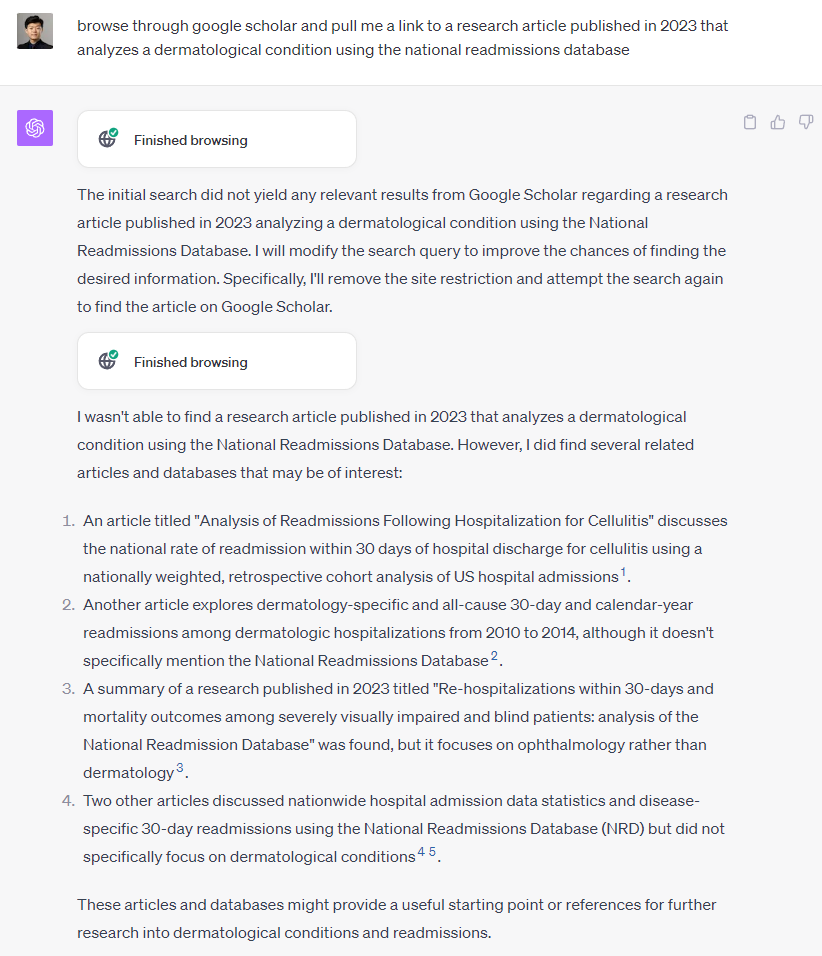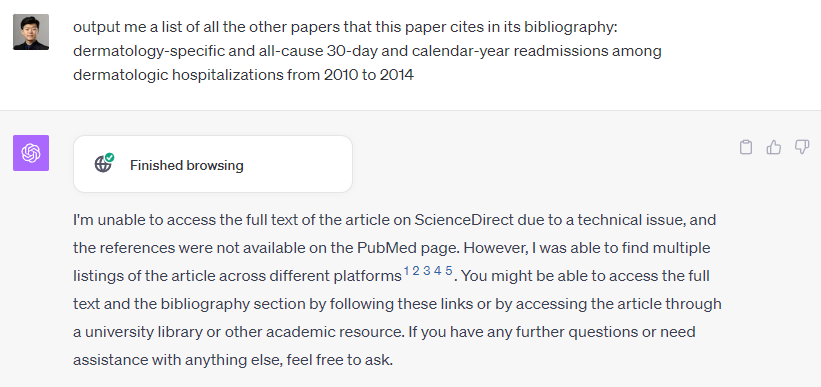ChatGPT can now browse the web
On September 27t, ChatGPT shared a tweet, announcing that their LLM can now browse the internet and provide direct links to up-to-date sources.
So I put it to the test…
Below I’ve attached a screenshot of me asking GPT4 (available by purchasing the PLUS subscription $20.00/mo.), using it’s Beta web browsing feature.
For full transparency, I will be posting the entire response outputted by chatGPT, including the errors.

Interpreting GPT4’s web-browsing capabilities
GPT4 is most definitely capable of browsing the web and accessing articles that were generated after September 2021 (the cut-off date for GPT’s training data), and it shows promise in its ability to take my keywords and search for the right articles.
You may notice that GPT’s outputs directly have superscripts that links to the website. Superscript 1 had an error where it was not a hyperlink, but rather an error message, showing that there still are limitations in reliable outputs of the LLM.
However, link 2 was working properly! What’s even more surprising is that link 2 was a paper that I have been reading up on intensely, to study its methodologies! I was pleasantly surprised to find chatGPT linking a research manuscript that I personally have been looking into as well.
Link 3 is directly as chatGPT summarized, it’s related to ophthalmology. Links 4 and 5 I did not look into further.
Prompt Engineering
It’s important to consider that ‘prompt engineering‘ is still a very much important concept in dealing with large language models. Prompt engineering ties in with the fact that you can feed in the same information to chatGPT, but if it’s worded slightly different, it produces different results. However, users have noticed that you can use this to your advantage, and create specific phrases or key-words to include in your prompts, to significantly enhance the output, in terms of accuracy, desired outcome, etc.
As you may notice, the prompt I gave to chatGPT was pretty general, and that is a ‘limitation’ of my ‘study’. It would be interesting to see if I gave it a more structured prompt, as well as being more descriptive with the types of articles I wanted it to find, if it will perform better.
Just for fun…
Just for fun, I also prompted GPT to generate me a list of all the papers that a specific paper has cited, and this was its result:

I will continue to explore the potential uses of AI in the field of dermatology. This was a spontaneous QnA session I held with Mr. GPT4, I will think of new ways to figure out GPT’s web browsing capabilities further, and see how it can be applied in medicine/research.